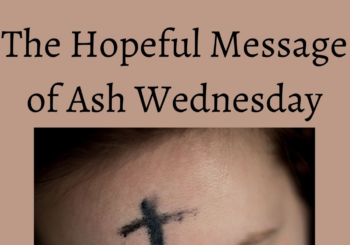
https://youtu.be/yb04OQQk6Jw
Ash Wednesday is a curious cultural phenomenon. While not a holy day of obligation for Catholics, Ash Wednesday services find church buildings unusually full, and even those who do not make time to attend a litu...
Read More
Read More

